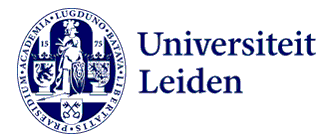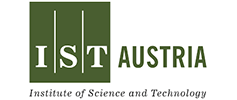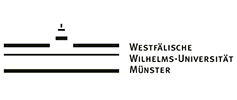Green Development Rights For Optimizing Urban Area And Coastal Areas In Indonesia (Consitency Of The State Of The Doctrine Of The Right To Control The State)
DOI:
https://doi.org/10.31078/consrev213Keywords:
Green Development Rights, Optimizing Urban Area, Coastal Areas, Doctrine of the right to control the stateAbstract
The green development right paradigm will elaborate the ontology (nature), and the ways or methods in order to achieve the ultimate goal of the green development right. This ultimate goal will be focused on the creation of the ideal maritime systems that may guarantee all related parties, such as individual, society, or community, private sectors and the government, to convert their potentials to be functional towards public welfare. The core elements of the green development right will emphasizes the series of norms in managing the coastal and frontline island potentials. The normative framework covers Environmental Law, Fishery Law, and Coastal Law. The research methods use an empirical approach and normative approach. The study documents the analysis consists of constitutions, legislation and various policies relating to the subject matter studied in Indonesia area and the problems it faces and report the results of the various meetings, seminars, public hearings.
References
Agus Dermawan and Arif Miftahul Azis, 2012, Pengembangan Minawisata Pulau-Pulau Kecil Untuk Mendukung Implementasi Green development right, Direktorat Pendayagunaan PPK-KKP, presented et KONAS VIII Pengelolaan Pesisir, Laut dan Pulau-pulau Kecil, Mataram 22-24 Oktober 2012.
Amartya Sen. 2005. Human Rights and Capabilities. Journal of Human Development Vol. 6, No. 2. Routledge. p. 161.
Christopher Corbin, 2013, There is no Green without Blue : An analysis of the importance of coastal and marine resources to the development of Green Economies by Carribean SIDS, Carribean Journal of International Relations & Diplomacy Vol.1, No.3, September 2013.
Coglianese, C. 2001. Social Movements, Law and Society: The Institutionalization of The Environmental Movement. University of Pennsylvania Law Review 150: pp. 85-118.
Coyle, Seand and Morrow, Karen, 2004. The Philosophical Foundations of Environmental Law: Property, Rights, and Nature, Hart Publishing Oxford & Portland Oregon, USA.
Daniel Bodansky, 2010, International Human Rights and Climate Change, Georgia Journal of International and Comparative Law Vol. 38 No.3.
Dikdik Mohamad Sodik, 2011, Hukum Laut Internasional Dan Pengaturannya di Indonesia, Refika Aditama : Bandung, Indonesia.
Dossier, 2013, Coastal Resources : Green development right in Crisis, April-May 2013, Singapore.
Ebbesson, Jonas, 2009. Environmental Law and Justice in Context. Cambridge University Press New York.
Edith Brown Weiss, 1989. In Fairness To Future Generations: International Law, Common Patrimony and Intergenerational Equity app. B.
Ernest Brandl & Hartwin Bungert, 1992. Constitutional Entrenchment of Environmental Protection: A Comparative Analysis ofExperiences Abroad, 16 Harvard Environmental Law Review. 1,82, tbl.I. (discussing constitutional environmental policies of Germany, Austria, Switzerland, the Netherlands, Spain, Greece, Portugal, Turkey, and Brazil)
Gillespie, Alexander, 2007. Protected Areas and International Environmental Law, Martinus Nijhoff Publishers. Koninklijke Brill NV, Leiden the Netherlands.
Government Regulation 62 of 2010 Concerning Utilization Minor Outlying Islands
Handayani, I Gusti Ayu Ketut Rachmi Handayani, 2013. Embodying Green Constitution by Applying Good Governance Principle for Maintaining Sustainable Environment, Journal of Law, Policy and Globalization, ISSN 2224-3240 (Paper) ISSN 2224-3259 (Online) Vol.11, 2013. p. 18.
Herman Khaeron, 2012. Transformasi Politik Kelautan Indonesia, Pustaka Cidesindo: Jakarta, Indonesia. http://esk.ipb.ac.id/ http://www.kkp.go.id/ http://www.ppk-kp3k.kkp.go.id/ http://www.sids2014.org/
Indonesia Maritime Magazine, 2011, Edition 13/Tahun II/Oktober 2011, Maritime Indomedia Perkasa : Jakarta, Indonesia.
IOC/UNESCO, IMO, FAO, UNDP, 2011, A Blueprint for Ocean and Coastal Sustainability, Paris : IOC/UNESCO.
John C. Dernbach, Seema Kakade, 2008, Climate Change Law : An Introduction, Energy Law Journal, Vol.29 No.1.
Keohane, N.O., Revesz,R.L., and Stavins,R.N. 1998. The Choice of Regulatory Instruments in Environmental Policy. Harvard Environmental Law Review 22: p. 313.
L. Mader.2001. Evaluating the effect: a contribution to the quality of legislation.
Statute Law Review. pp. 119-131.
Law No. 1 of 2014 on the Amendment of Act No. 27 of 2007 on the Management of Coastal Areas and Small Islands United Nations Convention on The Law of The Sea 1982 WCED, 1987.
Ministry of Maritime Republic of Indonesia, 2013, Mina Bahari Edition 1, January 2013
Marine Institute of Indonesia, 2010, Negara Kepulauan Menuju Negara Maritim, Jakarta : INDHILL CO dan Lembaga Laut Indonesia, p. 138..
Mohammad Ali Nugroho, 2011, Pemberdayaan Pulau Terluar Tidak Berpenghuni Di Sekitar Selat Malaka Dalam Meningkatkan Ketahanan Negara (Perspektif Strategis Ketahanan Nasional), Pasca Sarjana Universitas Indonesia Program Studi Pengkajian Ketahanan Nasional, Indonesia.
Muhammad Kasnir, 2011, Analisis Aspek Ekologi Penatakelolaan Minawisata Bahari di Kepulauan Spermonde Kabupaten Pangkep-Sulawesi Selatan, Semarang : Jurnal Ilmu Kelautan Universitas Dipenogoro Juni 2011 Vol. 16 (2) 61-69.
Rostron, Jack, 2001, Environmental Law for the Built Environment, Cavendish Publishing Limited, London UK.
Stephen Adrian Ross, 2013, Achieving Sustainable Development Targets through Green development right Development in the EAS Region, Manila, Philippines: PEMSEA Resource Facility.
Sudirman Saad, 2009, Hak Pemeliharaan dan Penangkapan Ikan : Eksistensi dan Prospek Pengaturannya di Indonesia, LKIS Yogyakarta, Indonesia.
Suharsono, 2008, Sustainable Harvest of Stony Corals [paper]. Di dalam: Workshop Penyusunan Peraturan Daerah Terumbu Karang-COREMAP II; Bogor, 12-13 Agustus 2008. Bogor: Coremap II, Departemen Kelautan dan Perikanan.
Sunoto, 2013, Menuju Pembangunan Kelautan dan Perikanan Berkelanjutan Dengan Konsep Green development right, Yogyakarta, Indonesia.
Tabb, W. M. 1999. Environmental Impact Assessment in the European Community: Shaping International Norms. Tulane Review 337.
UNESCO,(2011). Education for Sustainable Development Country Guidelines for Changing the Climate of Teacher Education to address sustainability: putting transformative education into practice, ISBN 978-602-98372-6-1.
































































